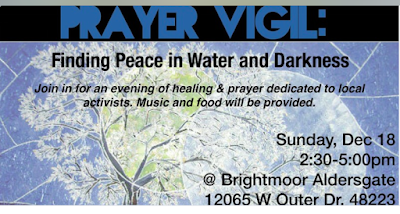Married with kids, Christmas was typically a big fat deal. Despite my objections to commercialism and excess, we always had a tree, multiple gifts, tons of food, and time with family and friends. I tried to counteract the rampant consumerism by making stuff with the kids instead of shopping: beeswax candles, our own Christmas cards, and cooking, of course. I never quite succeeded in simplifying Christmas, and usually spent the holiday alternating between grumpiness and a reluctant acceptance, trying to glean whatever joy I could soften into.
Sure, there were always wonder-filled moments, especially when the kids were small. There were occasions spent with friends and family when it wasn't littered with excess, and candlelight and carols at church, while Christmas served as a marker of tender memories.
After I left my life as a householder in 2010, I spent Christmas in a variety of ways. At a Vipassana meditation center, often in India studying at the Iyengar Institute, in Korea with family.... But this is the first time I've spent Christmas "on my own."
All my close friends are out of town and 2 of my children remain in Hawaii. Later I will see my daughter down the street at a neighbor's family gathering. I enjoyed a lovely candlelight service at church last night, and will return this morning, then cook, and join friends and family. Even so, this Christmas feels like my first solo journey.
What does this mean? I spent some time at Belle Isle, our treasured park on the Detroit River, went to Charity's tree, a young willow planted in memory of an iconic activist taken from us way too soon, burned some sage, offered a few eurythmy Halleluiahs, came home, and warmed the house with simmering bone broth. I have no tree, no gifts, few cards, and no one with me besides my roommate, who is on her way to family and church.
I woke up with a feeling that is extremely unusual for a future-oriented builder and creator who tends to lead a full, robust, and highly social life. It was a feeling of melancholic longing for the comfort of the familiar and the past. I had a dream of sitting at the piano at my old house, where we raised 3 kids, and all of them were gathered 'round. It was a feeling of overwhelming sweetness and tenderness, at something no longer available, that I chose to leave behind, and that our children have outgrown.
Instead of wishing it back, I would like to appreciate and savor these memories and experiences, with love and gratitude.
With an incredibly tender and open heart, I offer this asana sequence for Christmas morning.
Supta Baddhakonasana, to feel what I feel, and open my heart
Supta Virasana, to dispel fear and stop gripping
Adho Mukha Svanasana, to prostrate myself, and open to what's possible
Uttanasana, to settle introspectively into moderate discomfort
Sirsasana, to enhance circulation and get a new perspective
Ardha Chandrasana, to facilitate levity and the ability to fly, and to open the front groins to release the past
Virabhadrasana I, III, to build courage and embrace risk, and to fly some more
Dwipada Viparita Dandasana, chair, to open the heart and become more pliable
Ustrasana, to open to the wonder of the back space
Marichyasana III, to detoxify, get new circulation into the organs, and see things anew
Paschimottanasana, to bring it all together and take it all in
Sarvangasana, to integrate all the feels and circulate it through the body and mind
Savasana, to rest and soak up the effects
Whatever Christmas may mean to you, may you abide in the wisdom of the body, and allow the season to blossom in a healing way.





